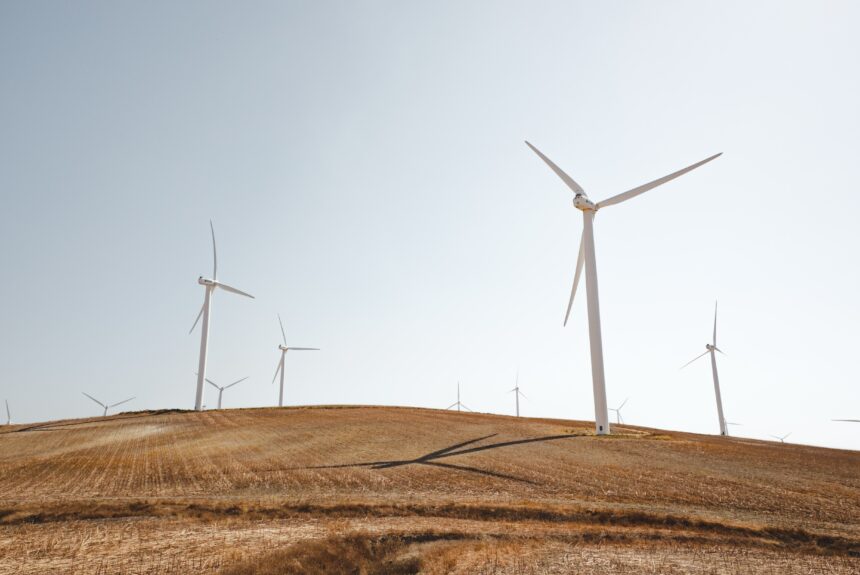Texas is the nation’s energy capital, and while many people associate Texas’ energy dominance with oil and gas, the state has also been a renewable energy leader. Due in large part to Texas’ competitive electricity markets, for the last decade and a half the Lone Star State has led the nation in wind-powered electricity generation, producing 26% of America’s wind energy in 2021. The swath of renewable power has benefited not only the environment but rural areas in the state as well, according to a new study from the Conservative Texans for Energy Innovation (CTEI).
>>>READ: Were Competitive Electricity Markets and Renewables to Blame in the Texas Blackouts?
CTEI’s new report, “The Economic Impact of Renewable Energy and Energy Storage in Rural Texas,” authored by Dr. Joshua Rhodes of the University of Texas, shows that clean energy projects are an economic boon for rural counties in Texas. Key findings from the report include:
- “Over their lifetime, the current fleet of utility-scale wind, solar, and energy storage projects in Texas are estimated to generate $7.2–$8.8 billion in new tax revenue to local communities”;
- “Existing utility-scale wind, solar, and energy storage projects in Texas are estimated to pay Texas landowners $7.1–$11.3 billion over the lifetime of the projects”; and
- “A county in Texas could expect to receive $9.4–$13.1 million in lifetime taxes (including school taxes) for a 100 MW solar project located in its boundaries, $16.8– $20.3 million for a 100 MW wind project, and $3.8–$4.7 million for a 100 MW energy storage project.”
Matt Welch, who heads up the Conservative Texans for Energy Innovation, recently joined John Hart on Right Voices to explain the importance of the report in light of what is happening in Texas.
The release of CTEI’s report comes at an especially important time in Texas. The Public Utility Commission (PUC), the agency that regulates the state’s electricity, water, and telecommunications markets, is blaming the state’s share of renewable power and Texas’ competitive electricity market structure for power outages experienced during Winter Storm Uri. As C3 has pointed out, renewables and the state’s competitive energy market did not cause Texas’ power outages during Uri, a lack of winterized infrastructure and planning did.
Nevertheless, the PUC has recommended a plan, known as the Performance Credit Mechanism (PCM), that would overhaul the state’s electricity market. The PCM will also disadvantage renewable power generation by creating a market of performance-based credits that would favor thermal power generators like coal and natural gas. While many are frustrated by the long list of subsidies and mandates that favor renewables at the expense of conventional fuels, federal and state policymakers should focus on removing market distortions – not layering on more.
>>>READ: Proposed Energy Grid Fix Is Not The Right Answer for Texas
Importantly, the PUC’s plan fails to account for the root causes (the state’s lack of winterized infrastructure) of electricity blackouts during Winter Storm Uri. Financing Texas’ market restructuring will fall on the state’s residents, who will be forced to spend billions of dollars in new electricity costs for a system that is not more reliable and restricts competition.
While natural gas should play a role in an “all of the above” strategy, it should be up to markets, not government entities, to pick energy winners and losers. The Performance Credit Mechanism will hurt energy innovation in Texas and sever a major revenue source for rural communities. As Rhodes states in the CTEI study:
“The growth of renewables has been a significant source of revenue for local jurisdictions and landowners across Texas, but any policy changes that reduce renewable or storage deployment in Texas will reduce these benefits, which are a lifeline to many rural communities across the state.”
For the sake of rural communities, consumer choice, and environmental progress, Texas’ state legislature should consider alternatives to the PUC’s Performance Credit Mechanism.
The views and opinions expressed are those of the author’s and do not necessarily reflect the official policy or position of C3.
